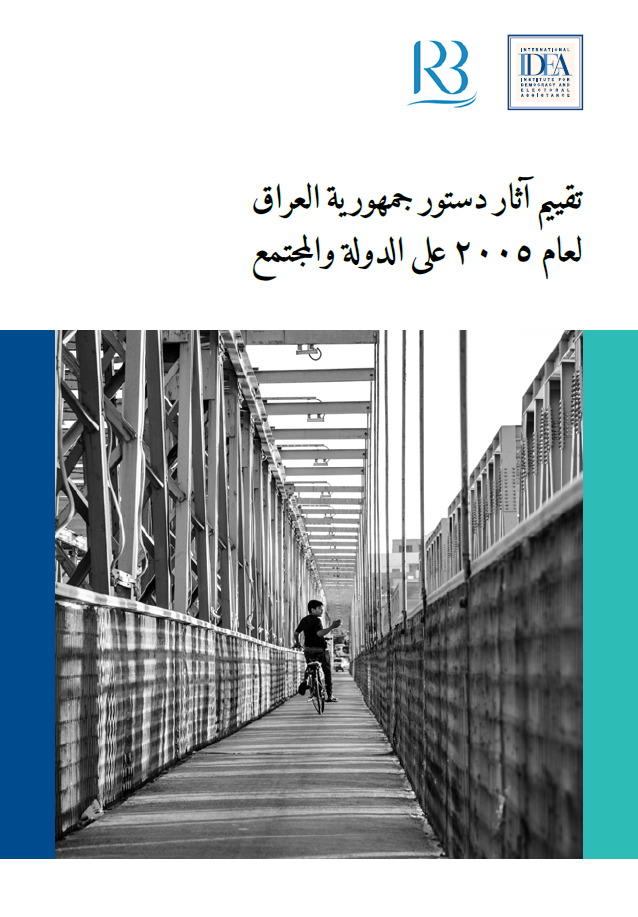Assessing the Iraqi Constitution’s Impact on State and Society
In 2016, International IDEA worked with leading experts in constitutional law to develop a new methodology for evaluating constitutions. The methodology consists of evaluating the 'performance' of a constitution, which includes defining its objectives and seeking to ensure that they are achieved based on data drawn from various sources. The Institute has since applied that methodology to a number of countries in collaboration with local experts and partners.
This report, which seeks to assess the performance of Iraq's 2005 Constitution, is part of this series. It builds on work that was done in other contexts, but also applies standards and methodologies specific to Iraq's circumstances. A team of experts and researchers conducted two opinion polls, collected socio-economic data, and interviewed prominent members of the 2005 Constitution Drafting Committee and subsequent amendment committees, among others. The team used that data to evaluate the Constitution's performance according to specific criteria, which was also used as a guide in drawing up the report's conclusions and recommendations.
***
عملت المؤسسة الدولية للديمقراطية والانتخابات في عام ٢٠١٦ مع خبراء بارزين في القانون الدستوري على وضع منهجية جديدة لتقييم الدساتير. وتتألف المنهجية من تقييم ‘أداء’ الدستور المعني، وهذا يتضمن تحديد أهدافه والسعي للتأكد من تحقيقها بناء على بيانات مأخوذة من مصادر مختلفة. وقد طبقت المؤسسة تلك المنهجية منذ ذلك الحين على عدد من البلدان بالتعاون مع خبراء وشركاء محليين.
يأتي هذا التقرير، الذي يسعى إلى تقييم أداء الدستور العراقي لعام ٢٠٠٥، في إطار تلك السلسلة. وهو يستند إلى الخبرات المكتسبة في إعداد التقارير السابقة، ولكنه يطبق أيضاً معايير ومنهجيات خاصة بظروف العراق تحديداً. فقد أجرى فريق من الخبراء والباحثين إستطلاعين للرأي، وجمع بيانات اجتماعية واقتصادية، وأجرى مقابلات مع أعضاء بارزين في لجنة صياغة دستور ٢٠٠٥ ولجان التعديل اللاحقة، وغيرهم. واستعان الفريق بتلك البيانات لقياس أداء الدستور وفقاً لمعايير محددة، كما استرشد بها في وضع استنتاجات التقرير وتوصياته.
